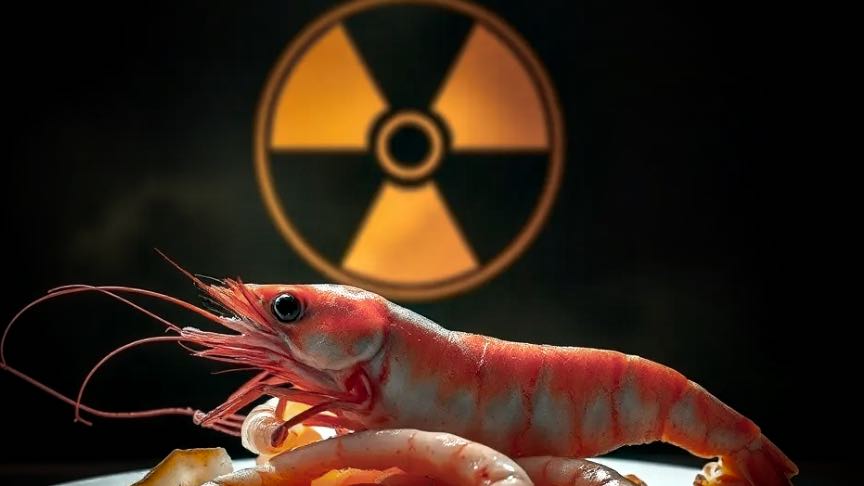Following FDA action, on August 29 Walmart said it was recalling shrimp sold under the Great Value brand that had been contaminated. Those shrimp had been sourced from Indonesia and the company PT. Bharai Maker Sejati doing business as BMS Foods. In a statement at the time, Walmart said it was "working with the supplier to investigate" the contamination.
Now, shrimp sourced from additional companies is being recalled over the same contamination concerns. The new recall covers shrimp sourced from Southward Foods, LLC; from Beaver Street Fisheries, LLC; and from AquaStar (USA) Corp. The latter shrimp were sold both under the Kroger Brand and the AquaStar brand.
According to the FDA, the shrimp being recalled were sold in multiple states. They include Alabama, Alaska, Arizona, Arkansas, California, Colorado, Florida, Georgia, Idaho, Illinois, Indiana, Iowa, Kansas, Kentucky, Louisiana, Massachusetts, Michigan, Minnesota, Missouri, Mississippi, Montana, Nebraska, North Dakota, Ohio, Oklahoma, Oregon, Pennsylvania, South Carolina, South Dakota, Tennessee, Texas, Utah, Virginia, Washington, West Virginia, and Wisconsin.
How the Contamination was Detected
According to the FDA, U.S. Customs & Border Detection (CBP) detected Cs-137 at the ports of Los Angeles, Houston, Savannah, and Miami. After those detections, "FDA collected multiple samples for radionuclide analysis, with results confirming the presence of Cs-137 in one sample of breaded shrimp."
In its original alert about the detection, the FDA said that "All containers and product testing positive or alerting for Cs-137 have been denied entry into the country."
In its latest advisory for August 29, the FDA continued to insist that "no product that has tested positive or alerted for Cesium-137 (Cs-137) has entered the U.S. marketplace."
While reassuring, that statement does not exclude the possibility that some contaminated shrimp entered the U.S. market undetected, thus eliciting the massive recall.
How Dangerous is the Contamination?
The FDA insists that tested levels of Cs-137 in the contaminated shrimp are low. The agency found that in the shrimp imported from BMS Foods the level of Cs-137 was 68 Becquerels (Bq) per kilogram (68 Bq/kg.)
"At this level, the product would not pose an acute hazard to consumers," the FDA said in its advisory. "Avoiding products like the shipment FDA tested with similar levels of Cs-137 is a measure intended to reduce exposure to low-level radiation that could have health impacts with continued exposure over a long period of time."
According to the Associated Press, "The level of Cesium-137 detected in the frozen shrimp was about 68 becquerels per kilogram, a measure of radioactivity. That is far below the FDA’s level of 1,200 becquerels per kilogram that could trigger the need for health protections."
The source of the Cs-137 contamination in the shrimp remains a mystery, however. As Nuclear Newsire from the American Nuclear Society points out, "Cs-137 is detectable in shrimp originating from the Pacific Ocean due to past nuclear testing and accidents, but the routine detection levels are roughly 100 times lower than the BMS shrimp."


